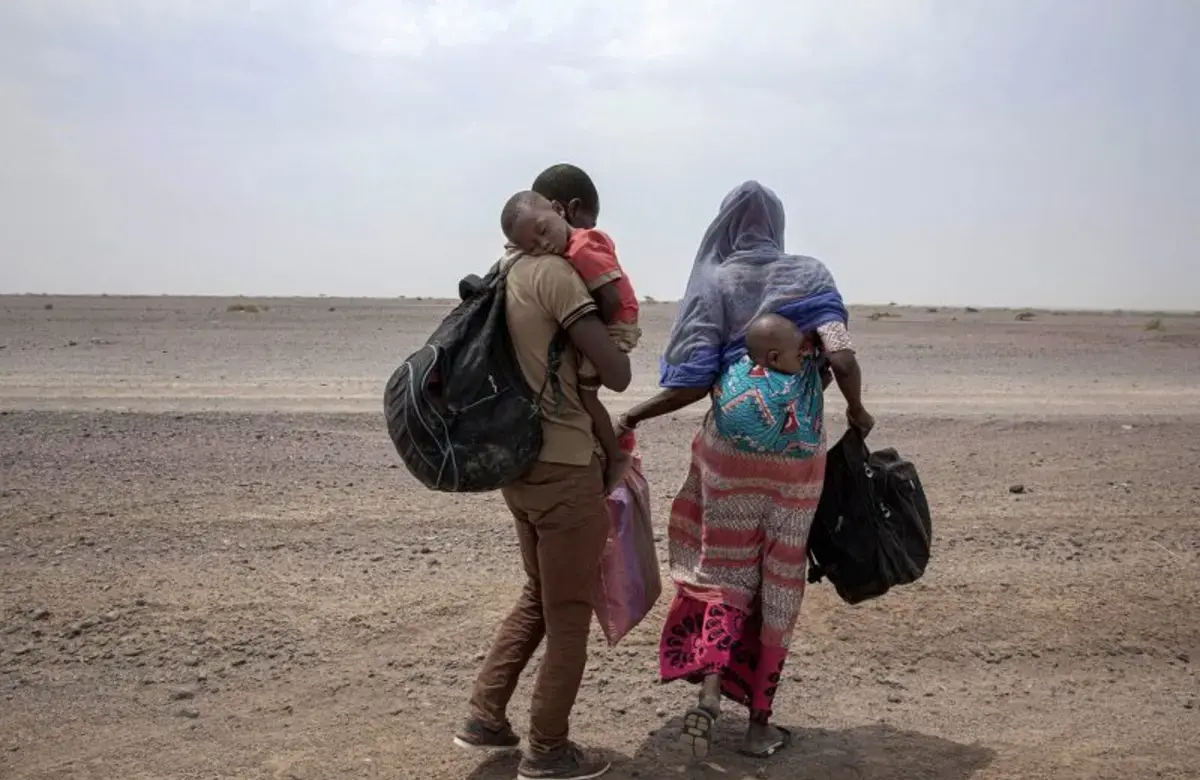Last August, Human Rights Watch revealed that between March 2022, and June 2023 the Saudi border guards have systematically killed hundreds of migrants and asylum seekers trying to cross the border between Yemen and Saudi Arabia.
People that are trying to cross this deadly border are mainly Ethiopian leaving their home country for economic and social reasons. Indeed, hope for better living standards are spread by a diaspora community of estimated 750 000 people already in Saudi Arabia. The perceived value of migration for people’s well-being, social empowerment, and an escape to poverty, develop the desire to migrate.
However, others are flying to Ethiopia due to the humanitarian crisis happening in the Tigray region provoked by the conflict between Tigray People’s Liberation Front and the Ethiopian federal government. This conflict has caused over 300 000 civilian casualties and displaced over 2.8 million people, according to the World Health Organization numbers. Therefore, there are also asylum seekers looking for a shelter in Saudi Arabia.
During their journey, these migrants can face important violations of their human rights from both sides of the border. In 2021, information delivered by Human Rights Watch revealed the cramped and unsanitary conditions in which migrants lived when moved to Yemeni migration camps. Additionally, interviewed migrants reported the verbal abuse of Yemeni security guards which includes racial slurs, threats, and swearing. They also accused Yemeni security guards of having launched unidentified projectiles at a group of migrants in a camp causing some casualties.
The International Organization for Migration estimates that in 2023, 200 000 migrants from the horn of Africa (Ethiopia, Somalia, Eritrea, Djibouti) required urgent humanitarian assistance.
In addition, to the abuses migrants can experience in Yemen, the country of their destination is not safer. On the contrary, Human Rights Watch have published a 73 page-long report signaling that between March 2022 and June 2023, the Saudi border guard have systematically opened fire on migrants trying to cross the Yemen-Saudi border causing hundreds of deaths among migrants and refugees. The International Organization for Migration states that at least 795 people have lost their lives in 2022 in the region of Yemeni northern border with Saudi Arabia.
Human Rights Watch have confirmed the use of explosive weapons from evidence, testimonies, and analysis of wounds. Interviewed migrants describe with intense and horrific details the scenes of horror they have encountered when crossing the border: “women, men, and children strewn across the mountainous landscape severely injured, dismembered, or already dead”. Testimonies from migrants also describe the intimidation strategies of Saudi border guards, showing to the survivors having them detained “how they were killing people”.
These migrants were faced with brutal violence from smugglers too. A 14-year-old girl explain that she has been threatened to be beaten and raped by the smugglers because she didn’t have enough money to pay them. In the end, the smugglers chose to use the 14-years-old-girl and other migrants as cannon folder to see if the route was safe: “After a couple of minutes [during the crossing], they [the smugglers] hung back, they [the smugglers] send you to walk in that place, that dangerous place they say “Go! Go!” and then they watch you. If you are successful and it is safe, they will follow you.”
These abuses and killings are not new for migrants who try to cross the Yemen-Saudi border. Since 2014, Human Rights Watch exposes the abuses Saudi border forces can perpetuate on people trying to cross the border. Observers signal an obvious change in pattern of Saudi security guards that went to apparent practice of occasional shooting and detention to widespread and systematic killings. The UN published its Expert Communication to Saudi Arabia and the Yemeni forces where it accused them of abuses of human rights, allegations that have been refuted by Saudi Arabia. A need for an investigation by international judicial actors is needed.

